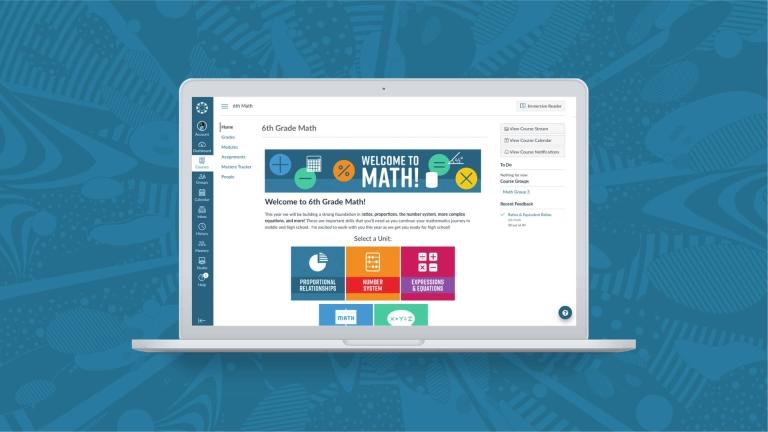
“...Administrators listening to teachers more than just looking at assessments would make the biggest impact on the current assessment climate.” - Teacher Respondent in the 2023 State of K-12 Assessment Survey
As educators, every day presents the opportunity not only to teach but to continue learning and growing. A crucial aspect of this growth lies in the collaboration between teachers and school administrators. The entire school community flourishes when administrators understand how to foster ongoing development and support their teachers.
In the 2023 State of K-12 Assessment, 51% of educators emphasized that assessment technology usage is influenced by the support it receives from school leadership. This data point shows what we’ve known to be true for years: administrator support matters–in many areas, especially when building positive, effective assessment cultures.
Let's delve into six valuable tips to strengthen the admin-teacher partnership this school year.
1. Establish A Common Language & Communicate the School’s Assessment Vision
Effective communication begins with a shared understanding of assessment terms and concepts to ensure everyone is on the same page when discussing student progress, data analysis, and assessment strategies:
- Formative, benchmark/interim, and summative assessments
- What does each mean at your school?
- How often should teachers be administering them?
- How do teachers recognize, create, and evaluate a high-quality assessment?
Keep the school's vision and goals at the forefront of assessment conversations. Consistent reinforcement of the shared vision reminds everyone of the greater purpose they are working towards to elevate student success.
2. Make Yourself Available & Communicate Frequently
Open and frequent communication is the backbone of any strong relationship. This is true when it comes to building a solid administrator-teacher partnership.
Regular, meaningful moments of connection between administrators and teachers provide the opportunity to share ideas, discuss challenges, and celebrate successes. These interactions foster trust and mutual understanding.
Administrators should be approachable and accessible to teachers throughout the school year. By making themselves available for discussions, feedback, and support, administrators demonstrate their commitment to the growth and well-being of their teaching staff.
- Make yourself available before or after school to connect (Coffee or Cookies with the Principal, anyone?)
- Offer praise for jobs well-done and encouragement during stressful assessment seasons.
-
Be visible (Greet teachers and students in the morning. Spend time in classrooms outside of teacher evaluations and state summative assessment season. Become familiar with the entire school through the whole year.)
3. Acknowledge Assessment Stressors
Teachers (81%) are still more likely than administrators (36%) to report that assessments make students anxious, according to our 2023 survey. All educators can work together to help ease assessment anxiety for students.
With such an overwhelming number of teachers still reporting student anxiety surrounding assessments, administrators have an opportunity to connect and build rapport. Teachers spend countless hours with students. Acknowledging and discussing their concerns around student stressors openly can lead to a more supportive learning environment. Don’t be afraid to reach out to students, too–asking for their feedback can help foster an environment built on solid student voice and engagement.
Create opportunities to address these concerns and find solutions collaboratively.
4. Use Assessment Technology to Track and Connect
When describing what features they most look for in assessment technology, educators in this year's survey were clear:
- Track student mastery of learning standards (46%)
- Ability to align content to learning standards (46%)
- Real-time data delivery (42%)
Learn how to choose assessment technology that makes it easier to share assessment resources, track progress, and celebrate achievements (and growth!) on student learning journeys.
5. Make Professional Development Teacher-Focused
Tailor professional development opportunities to meet the specific needs and interests of teachers. Administrators tend to prioritize professional development opportunities surrounding assessment data literacy (66%) and assessment practices (63%), while teachers want support in questioning strategies (52%) and supporting English learners (51%).
Make sure there is balance in the topics provided. Providing relevant and engaging workshops and training sessions empowers teachers and shows administrators value their professional growth.
6. Discuss Data
50% of teachers and 55% of administrators agreed that a key driver of assessment technology usage was if the technology provided valuable data.
Data is everywhere in today’s schools. Schools must be both data collectors and data users. We’ve said it before, and we’ll repeat it–if we collect data from students, we have a moral obligation to use it to benefit them. The right assessment technology provides everyone with the data they most need. With this data, it’s essential to encourage PLCs to take data-driven actions in response to trends they’re finding in the data.
Collaboratively set data goals aligning with the school's vision and mission.
More Keys to Success
The admin-teacher partnership is the backbone of a thriving school community. When teachers feel supported and valued by administrators, they can better support their student's growth and development. When administrators establish trust, they gather more honest, informed feedback that helps them successfully lead the school’s assessment strategy. This support translates into higher student engagement and achievement.
By following these tips to strengthen the admin-teacher partnership, schools can cultivate a positive and dynamic assessment environment for everyone.
Download the entire State of Assessment in K-12 Education report to dive into more teacher and administrator perspectives:
- 1,000 educator responses from admin to teachers to assessment specialists from diverse backgrounds nationwide
- Five key trends
- Our perspectives and considerations for assessment today
Related Content
 Teaching-With-Tech-10-Benefits.jpg
Teaching-With-Tech-10-Benefits.jpgBlogs
 creds-retention.jpg
creds-retention.jpgBlogs
 cidilabs.png
cidilabs.pngBlogs
